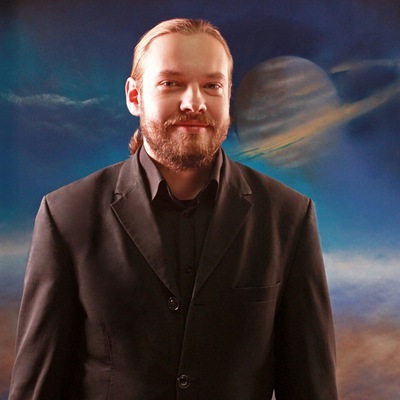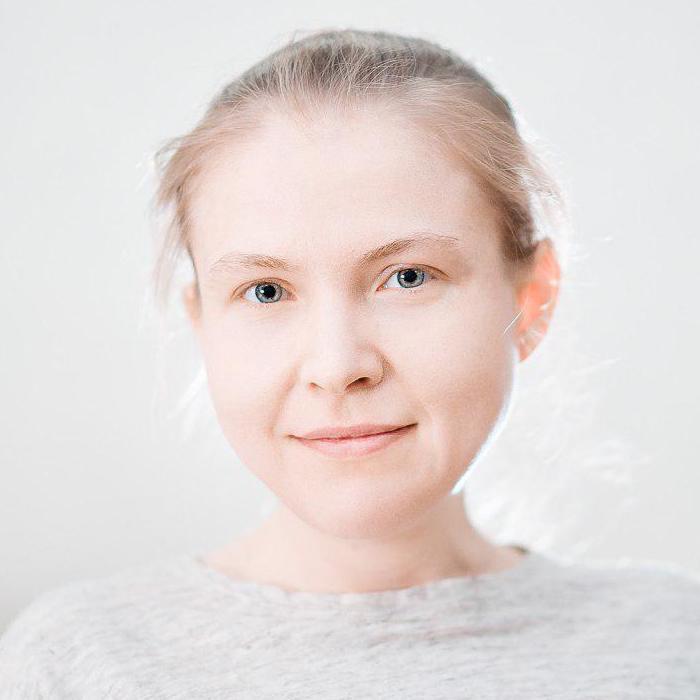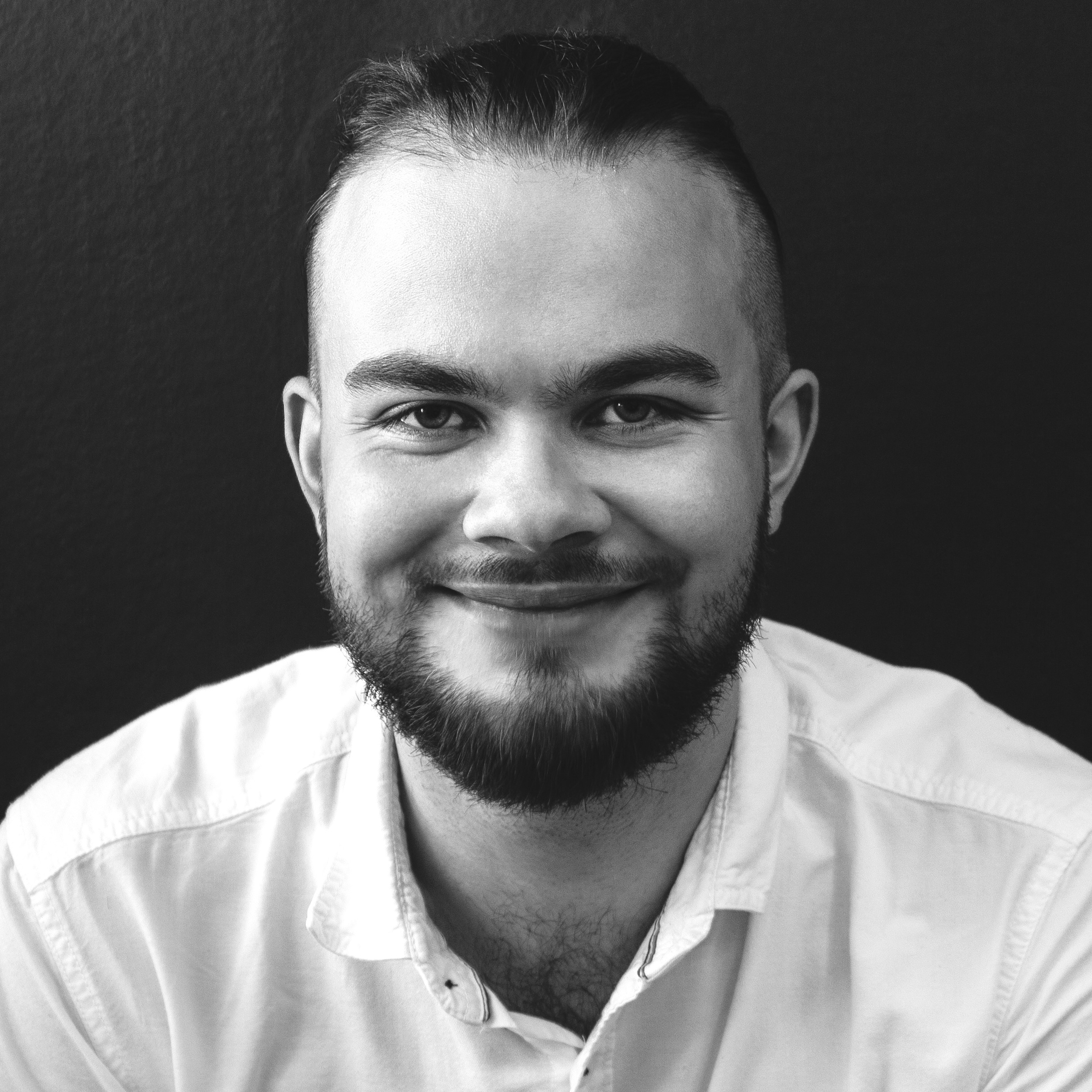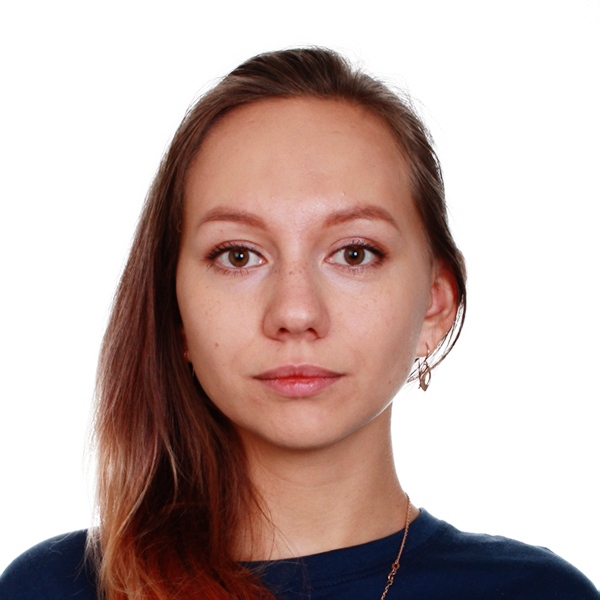Science Section at DUMP: Expand Your Horizons
April 19 in Yekaterinburg will host a conference of developers DUMP . Science section program directors - Victor Grishchenko (TU Delft), Alexey Kirpichnikov (Kontur) and Gleb Alshansky (Jet.Team) - said that the section would be interesting and why go to it.

How often did you happen that at a conference of 5, 6, 7, 8 or more threads at some point in time you still have nowhere to go? Just because your specialization is one or two sections, and topics are stated there that you yourself would tell more, better, hardcore. Or, conversely, a stack or topic past you.
For this case, the Science section was created at DUMP - A section about the exact and natural sciences, about discoveries that will change our lives in the next 5-10 years, about research at the intersection of science and IT and about what global science problems you can apply your skills to.
This year we are waiting for: immersion in mathematics, the transition to quantum computing, breakthrough technologies in text recognition and a critical look at machine learning. We will solve problems of a planetary scale and plunge into the level of microcosm and DNA in the fight against aging. And finally, let's see how technology helps solve the greatest challenges of mankind.
 Can neural networks on mobile phones extend our life and help improve its quality? Is it possible to slow down aging? What discoveries in the field of aging have science made in recent years? What does data-science have to do with it? Peter Fedichev, Head of the Laboratory for Modeling Living Systems at MIPT and CEO of Gero, will talk about this.
Can neural networks on mobile phones extend our life and help improve its quality? Is it possible to slow down aging? What discoveries in the field of aging have science made in recent years? What does data-science have to do with it? Peter Fedichev, Head of the Laboratory for Modeling Living Systems at MIPT and CEO of Gero, will talk about this.
 Oleg Bartunov will perform in an unusual role for developers - as a senior researcher in the department of emission stars and galaxies of Moscow State University GAISh. Oleg will talk about the changes taking place in science, explain what scientific data are, why it is so important to maintain “raw data” and what requirements are imposed on the architecture of scientific databases. Using astronomy as an example, Oleg will show how information technologies help solve the greatest tasks of mankind.
Oleg Bartunov will perform in an unusual role for developers - as a senior researcher in the department of emission stars and galaxies of Moscow State University GAISh. Oleg will talk about the changes taking place in science, explain what scientific data are, why it is so important to maintain “raw data” and what requirements are imposed on the architecture of scientific databases. Using astronomy as an example, Oleg will show how information technologies help solve the greatest tasks of mankind.
 Lecturer of the Department of Astronomy and Geodesy of the IENiM UrFU, a popularizer of science, the head of the kantrSkrip School of Astronomy, Pavel Skripnichenko, will tell you how great the asteroid-comet hazard is and whether the threat is real, whether humanity can protect itself from this danger, what means of observation, forecasting and counteraction exist, and What remains to be done to answer the question - will there be no end of the world?
Lecturer of the Department of Astronomy and Geodesy of the IENiM UrFU, a popularizer of science, the head of the kantrSkrip School of Astronomy, Pavel Skripnichenko, will tell you how great the asteroid-comet hazard is and whether the threat is real, whether humanity can protect itself from this danger, what means of observation, forecasting and counteraction exist, and What remains to be done to answer the question - will there be no end of the world?
 Tatyana Zobnina , a statistician from Naumen, will show how to extract knowledge from machine learning models, how to assess the importance of the relationships between different data, and how to interpret and visualize these dependencies.
Tatyana Zobnina , a statistician from Naumen, will show how to extract knowledge from machine learning models, how to assess the importance of the relationships between different data, and how to interpret and visualize these dependencies.
 Igor Mamayfrom Contour will talk about how the programming of quantum computers is transformed from an occupation for candidates of science in white coats into a hobby that any programmer can do at home. Igor will give a theoretical basis and links to emulators of quantum computers, which you can program yourself.
Igor Mamayfrom Contour will talk about how the programming of quantum computers is transformed from an occupation for candidates of science in white coats into a hobby that any programmer can do at home. Igor will give a theoretical basis and links to emulators of quantum computers, which you can program yourself.
 Gennady Shteh from Naumen will tell you how automatic word processing technologies have evolved with the advent of neural networks, which has changed significantly over the past year in the field of Natural Language Processing and why new opportunities are now opening up in this area.
Gennady Shteh from Naumen will tell you how automatic word processing technologies have evolved with the advent of neural networks, which has changed significantly over the past year in the field of Natural Language Processing and why new opportunities are now opening up in this area.

 Vladislav Blinov and Valeria Baranovafrom Tinkoff.ru will analyze the task of creating a chatbot and answer an urgent question concerning not only machine learning, but also any other rapidly developing field of science. Should a practicing engineer hurry up and take the latest algorithm from yesterday's scientific article? And in what cases are simpler and older algorithms working better on real tasks?
Vladislav Blinov and Valeria Baranovafrom Tinkoff.ru will analyze the task of creating a chatbot and answer an urgent question concerning not only machine learning, but also any other rapidly developing field of science. Should a practicing engineer hurry up and take the latest algorithm from yesterday's scientific article? And in what cases are simpler and older algorithms working better on real tasks?
Come to the section if you are tired of poking around in the ordinary. Our speakers speak to expand the horizons of knowledge :)

All reports from last year's Science section can be viewed on the YouTube channel.
Abstracts of all reports and registration can be found on the conference website .

How often did you happen that at a conference of 5, 6, 7, 8 or more threads at some point in time you still have nowhere to go? Just because your specialization is one or two sections, and topics are stated there that you yourself would tell more, better, hardcore. Or, conversely, a stack or topic past you.
For this case, the Science section was created at DUMP - A section about the exact and natural sciences, about discoveries that will change our lives in the next 5-10 years, about research at the intersection of science and IT and about what global science problems you can apply your skills to.
What will the section be about?
This year we are waiting for: immersion in mathematics, the transition to quantum computing, breakthrough technologies in text recognition and a critical look at machine learning. We will solve problems of a planetary scale and plunge into the level of microcosm and DNA in the fight against aging. And finally, let's see how technology helps solve the greatest challenges of mankind.
Reports
 Can neural networks on mobile phones extend our life and help improve its quality? Is it possible to slow down aging? What discoveries in the field of aging have science made in recent years? What does data-science have to do with it? Peter Fedichev, Head of the Laboratory for Modeling Living Systems at MIPT and CEO of Gero, will talk about this.
Can neural networks on mobile phones extend our life and help improve its quality? Is it possible to slow down aging? What discoveries in the field of aging have science made in recent years? What does data-science have to do with it? Peter Fedichev, Head of the Laboratory for Modeling Living Systems at MIPT and CEO of Gero, will talk about this.  Oleg Bartunov will perform in an unusual role for developers - as a senior researcher in the department of emission stars and galaxies of Moscow State University GAISh. Oleg will talk about the changes taking place in science, explain what scientific data are, why it is so important to maintain “raw data” and what requirements are imposed on the architecture of scientific databases. Using astronomy as an example, Oleg will show how information technologies help solve the greatest tasks of mankind.
Oleg Bartunov will perform in an unusual role for developers - as a senior researcher in the department of emission stars and galaxies of Moscow State University GAISh. Oleg will talk about the changes taking place in science, explain what scientific data are, why it is so important to maintain “raw data” and what requirements are imposed on the architecture of scientific databases. Using astronomy as an example, Oleg will show how information technologies help solve the greatest tasks of mankind. Lecturer of the Department of Astronomy and Geodesy of the IENiM UrFU, a popularizer of science, the head of the kantrSkrip School of Astronomy, Pavel Skripnichenko, will tell you how great the asteroid-comet hazard is and whether the threat is real, whether humanity can protect itself from this danger, what means of observation, forecasting and counteraction exist, and What remains to be done to answer the question - will there be no end of the world?
Lecturer of the Department of Astronomy and Geodesy of the IENiM UrFU, a popularizer of science, the head of the kantrSkrip School of Astronomy, Pavel Skripnichenko, will tell you how great the asteroid-comet hazard is and whether the threat is real, whether humanity can protect itself from this danger, what means of observation, forecasting and counteraction exist, and What remains to be done to answer the question - will there be no end of the world?  Tatyana Zobnina , a statistician from Naumen, will show how to extract knowledge from machine learning models, how to assess the importance of the relationships between different data, and how to interpret and visualize these dependencies.
Tatyana Zobnina , a statistician from Naumen, will show how to extract knowledge from machine learning models, how to assess the importance of the relationships between different data, and how to interpret and visualize these dependencies.  Igor Mamayfrom Contour will talk about how the programming of quantum computers is transformed from an occupation for candidates of science in white coats into a hobby that any programmer can do at home. Igor will give a theoretical basis and links to emulators of quantum computers, which you can program yourself.
Igor Mamayfrom Contour will talk about how the programming of quantum computers is transformed from an occupation for candidates of science in white coats into a hobby that any programmer can do at home. Igor will give a theoretical basis and links to emulators of quantum computers, which you can program yourself.  Gennady Shteh from Naumen will tell you how automatic word processing technologies have evolved with the advent of neural networks, which has changed significantly over the past year in the field of Natural Language Processing and why new opportunities are now opening up in this area.
Gennady Shteh from Naumen will tell you how automatic word processing technologies have evolved with the advent of neural networks, which has changed significantly over the past year in the field of Natural Language Processing and why new opportunities are now opening up in this area. 
 Vladislav Blinov and Valeria Baranovafrom Tinkoff.ru will analyze the task of creating a chatbot and answer an urgent question concerning not only machine learning, but also any other rapidly developing field of science. Should a practicing engineer hurry up and take the latest algorithm from yesterday's scientific article? And in what cases are simpler and older algorithms working better on real tasks?
Vladislav Blinov and Valeria Baranovafrom Tinkoff.ru will analyze the task of creating a chatbot and answer an urgent question concerning not only machine learning, but also any other rapidly developing field of science. Should a practicing engineer hurry up and take the latest algorithm from yesterday's scientific article? And in what cases are simpler and older algorithms working better on real tasks? Come to the section if you are tired of poking around in the ordinary. Our speakers speak to expand the horizons of knowledge :)

All reports from last year's Science section can be viewed on the YouTube channel.
Abstracts of all reports and registration can be found on the conference website .
